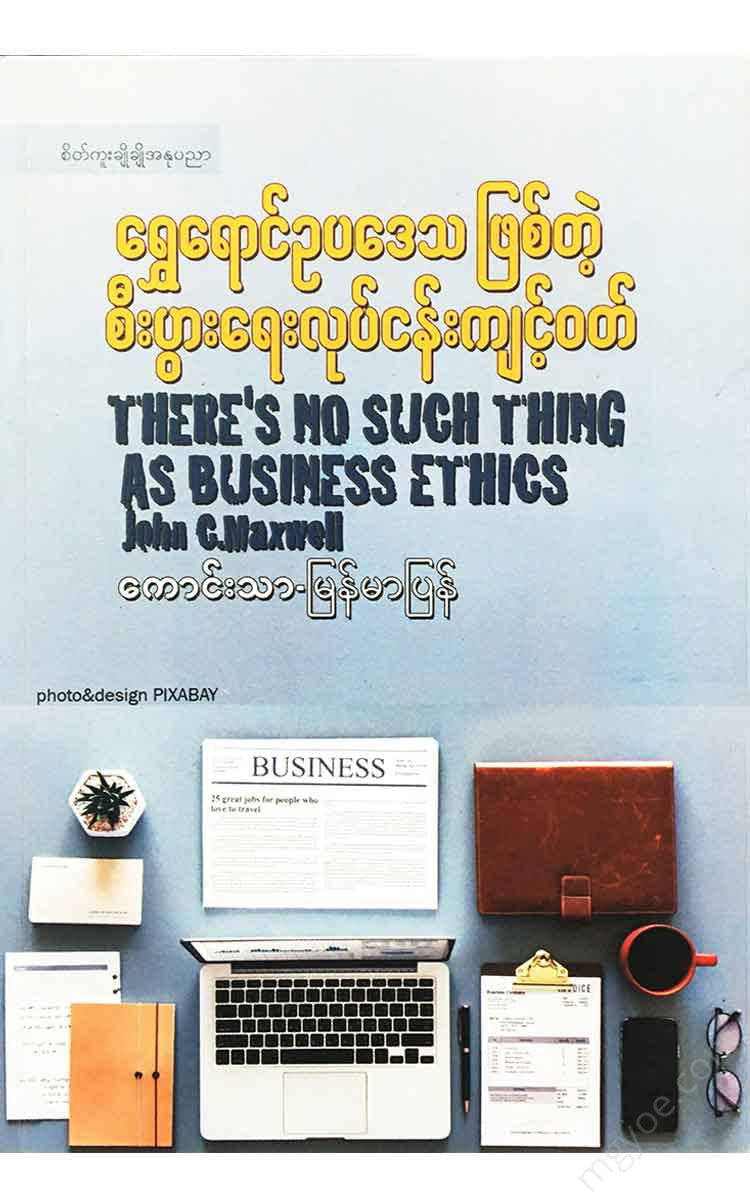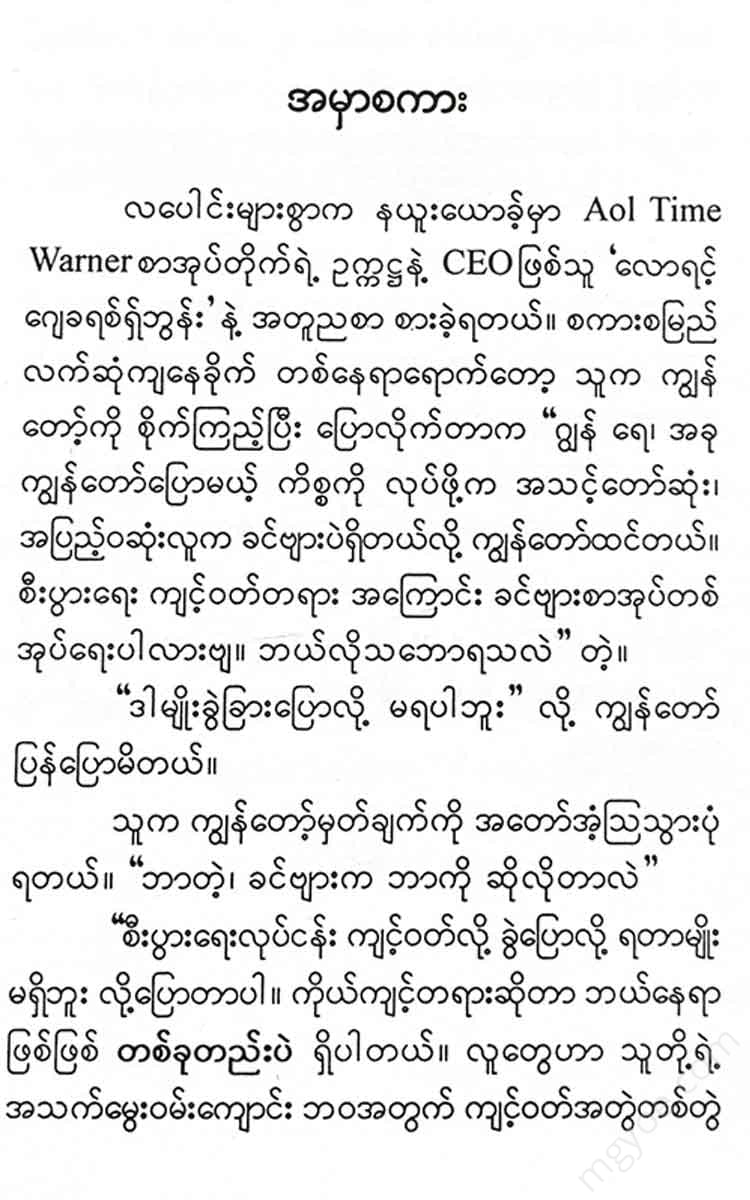စိတ်ကူးချိုချိုစာပေ
Good - The golden rule of business ethics
Good - The golden rule of business ethics
Couldn't load pickup availability
No matter what happens in business ethics,
On November 8, 2001, Enron, one of the hottest and most successful companies of the 1990s, admitted to inflating its accounting practices by $586 million over a four-year period. A month later, Enron filed for Chapter 11 bankruptcy. In early 2002, the Justice Department began investigating the company’s internal practices. Investigators wanted to know how well executives understood the company’s status. Executives secretly sold their own shares of Enron stock to their subordinates. They sold $1 billion worth of it. The company was in trouble, its retirement savings were wiped out, and investors lost a total of more than $60 billion. Investors were shocked and asked: How did this happen? Why? Who did it?
A few months later, on March 27, 2002, people started talking about ethics. It all started when Adelphia Communications, the nation's sixth-largest cable company, announced that it was in financial trouble. The company's founder, John Rigas, and his three sons, Timobi "Michael" and "James," had misused the company's combined debt of $3.1 billion to fund personal purchases and family financial projects. After Ricoh was fired, the company filed for bankruptcy. The stock plummeted, and on June 3, 2002, Adelphia was delisted from the Nasdaq. People were becoming more concerned about ethics in business. People were asking these questions.
"What kind of people do this? How did this happen? Is this possible again?"
Similarly, Tyco CEO Dennis Kozlowski was indicted by the U.S. District Attorney's Office in Manhattan, New York City, for allegedly evading $1 million in sales taxes on his personal purchases of artwork and other valuables. Investigators continued to find irregularities in his actions, including that he and two other Tyco executives spent about $600 million of the company's money. Concerns about private morals have become a hot topic.
Later that month, Time magazine reported on the “Summer of Distrust.” According to a CNN poll, “72 percent of Americans are not alone in their fear of corporate fraud.” WorldCom, the world’s largest company, announced that its internal auditors had found irregularities in its accounting processes. It overstated its profits by $7.1 billion between 2000 and 2002. WorldCom said it had overstated its costs by $3.8 billion over the past five years. What were the consequences? 17,000 workers lost their jobs. Stocks plunged more than 75 percent. The public was left wondering why this was happening. Why were companies so corrupt? What was happening to business ethics?
Step back
(Many people are becoming disgusted with the moral corruption in America. They are sick of the dishonesty and the lies. UC Berkeley accounting professor “Brett Truman” made this observation while teaching at the Haas School of Business. “The markets are crashing almost every day, and investors don’t know who to trust. When these things come up, they just have to keep building.”)
These problems are not limited to the business world, but also within religious organizations. The public is shocked by the shocking corruption that has been uncovered within the Catholic Church. Even Pulitzer Prize-winning historian Stephen Ambrose plagiarized material from historian Thomas Childers for his book The Wild Blue. Plagiarizing other people's writings as if they were his own has won him a Pulitzer Prize, which has tarnished the reputation of the profession.
The figure skating competition at the Winter Olympics in Soekarno-Hatta was also marred by irregularities that led to undue influence and bias in the jury's decisions.
Pollster Joe Berner surveyed leaders from many professions about their "full trust" in making decisions related to employment, and when he looked at the closest "morality" to theirs, he found the following pitfalls.
2. We do whatever we have to do in order to succeed.
Like most people, I hate failure. Business people, in particular, don't want to fail; they want to succeed. When faced with a choice between being morally upright and being successful, which path do many people take? The Atlanta Business Chronicle reports that a leading Atlanta company called a group of executives together for a national conference and a three-day brainstorming session. The conference was attended by salespeople
Thousands attended. As they exchanged ideas from various sectors, the senior vice president of the corporation enthusiastically offered a suggestion: “Shouldn’t we talk about issues of good morals?”
Suddenly, the room fell silent, as if someone had died. It only lasted a moment. The vice-chairman said nothing, but her words were forgotten and the meeting continued on with other topics. She, too, seemed to be dragged behind and dropped her idea.
She repeated this idea to the company's CEO later that day. She suggested that he give a speech on ethics at the conference. She hoped he would agree, but...
3. Relativism and the need to consider our choices in context
Many people choose to deal with this kind of no-win situation. It's like you have to decide at a moment's notice what's right. The idea of choosing the right thing to do is a concept that dates back to the 1960s, when St. Paul's Cathedral in Cincinnati, Ohio, was built.
The school principal, Dr. Joseph Fletcher, has a similar idea to that in his book, "Ethics in Situations." He says in that book that love is the standard by which we can discern right from wrong.
The Executive Leadership Foundation states the following:
“Fletcher’s will is to determine the truth in the circumstances. Love justifies all things. It tolerates lying, stealing, cheating, even murder. This philosophy has spread throughout the world in religious and educational circles. Since the 1960s, situational morality has become a model of social behavior. After rapidly spreading through the worlds of education, religion, and government, a new field has emerged:











